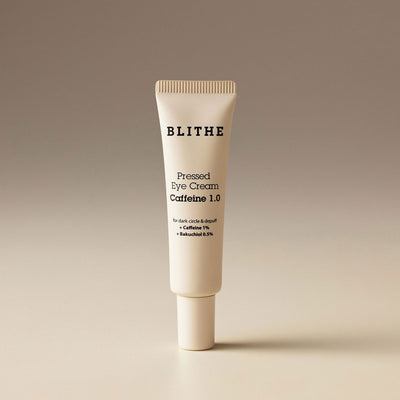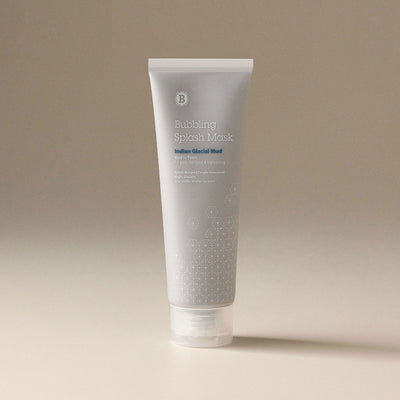Finding the best moisturizer for oily skin can be a turning point for those who have long battled acne and excess sebum production. Often misunderstood, oily skin requires a unique approach to skincare that balances moisture without exacerbating oil production. Factors like diet, hormonal imbalances, and over-cleansing can contribute to the dilemma, highlighting the importance of a tailored skincare regimen.
In tackling the quest for oil-free skin, this article will delve into the essentials of managing oily skin, from the significance of cleansing and toning to choosing the best moisturizer for oily skin. It will also explore routine tips that can mitigate sebum overproduction, paving the way for a clearer, healthier complexion.

Understanding Oily Skin
Oily skin is primarily caused by the overproduction of sebum, a natural oil produced by sebaceous glands. This condition can be influenced by various factors, each playing a significant role in skin health:
Genetic Influence
Genetics often dictate how much sebum your skin produces, making oily skin a hereditary trait for many.
Hormonal Changes
Fluctuations in hormones during puberty, pregnancy, or menopause can increase sebum production. Similarly, medications affecting hormone levels can also contribute to oily skin.
Chronic Conditions
Conditions like polycystic ovary syndrome (PCOS) directly impact hormone levels and subsequently, sebum production.
Diet and Lifestyle
High body weight and frequent intake of dairy or sweets have been correlated with oilier skin. Additionally, chronic alcohol consumption can damage blood vessels, potentially leading to enlarged pores and increased oil production.
Environmental Factors
Living in hot and humid climates can exacerbate oil production. Adjusting your daily routine to accommodate high heat and humidity can help manage excessive oiliness.
Skincare Products
The use of heavy creams or products not suited for oily skin types can worsen the condition. It's crucial to choose skincare items that complement your skin type to avoid additional oiliness.
Understanding these factors can aid in managing oily skin more effectively, promoting a balanced and healthier complexion.

The Role of Cleansing
Cleansing is a cornerstone in managing oily skin effectively. It's not just about removing dirt; it's about regulating your skin's health and appearance. Here's a closer look at how proper cleansing impacts oily skin:
Key Cleansing Practices for Oily Skin
Avoid Over-Washing
Washing too frequently can strip the skin of its natural oils, prompting an increase in oil production. It's advisable to cleanse no more than twice a day to maintain balance.
Choose the Right Cleanser
For oily skin, gel-based or foamy cleansers that are low in pH can be more beneficial. These products help manage oil without causing dryness.
Double Cleansing Method
This technique involves using an oil-based cleanser followed by a water-based cleanser. The first step draws out oil-based impurities while the second cleanses away water-based debris, providing a thorough clean without over-drying the skin.
Gentle Products
Opt for cleansers labeled "gentle" or "for sensitive skin" to avoid harsh chemicals that can trigger more oil production. These products effectively remove impurities without compromising the skin’s barrier.

Benefit of Oil Cleansing
Balances Oil Production
Oil cleansing can help regulate sebum levels by using oils like jojoba or argan, which mimic the skin’s natural oils.
Hydrates and Protects
This method also maintains hydration and protects the natural lipid layer of the skin, supporting the beneficial bacteria that live on the surface.
Effective Makeup Removal
Oil cleansers excel at dissolving makeup, SPF, and other oil-based impurities, making them ideal for evening routines.
Routine Tips
Morning and Evening Cleansing
Start and end your day by cleansing to remove overnight oils and prepare your skin for bedtime treatments.
Patch Testing
Always perform a patch test with new products to ensure compatibility with your skin, reducing the risk of adverse reactions.
By understanding and implementing these cleansing practices, individuals with oily skin can achieve a clearer, healthier complexion. Regular and correct cleansing methods remove impurities while balancing skin hydration and oil production.

Importance of Toning
Toners are essential for managing oily skin effectively. They play multiple roles, from deep cleansing to balancing skin pH levels. Here’s how toners can benefit those with oily skin:
Deep Cleansing and Unclogging Pores
Remove Leftover Impurities
Even after cleansing, some dirt or makeup can remain on the skin. Toners help in removing these residues, ensuring pores are free from any clogs.

Control Sebum
Ingredients like witch hazel and tea tree oil in toners can reduce excess oils and tighten pores, which helps in controlling sebum production.
Balancing Skin pH and Hydration
Neutralize pH Levels
Oily skin tends to have a more acidic pH. Toners work to bring these levels to a more neutral state, which is crucial for maintaining healthy skin.
Hydrate Without Oil
It’s a misconception that oily skin doesn’t need hydration. Toners provide necessary moisture without adding oil, helping to manage shine and maintain a balanced complexion.
Enhancing Skin Health and Preparation
Prep for Further Skincare
By cleaning and balancing the skin, toners prepare the face for better absorption of moisturizers and serums.
Soothe and Protect
For those with sensitive skin, toners with aloe, seaweed, and vitamin E can reduce redness and irritation, promoting a calm and even skin tone.
Regular use of a suitable toner can transform the health and appearance of oily skin, making it an indispensable step in your skincare routine.

Moisturizing Oily Skin
Key Ingredients in Moisturizers for Oily Skin
When selecting a moisturizer for oily skin, it's essential to choose one that maintains hydration without contributing to excess oiliness. Here are some ingredients to look for
- Hyaluronic Acid attracts moisture to the skin without adding oil, making it ideal for hydration.
- Niacinamide helps reduce the appearance of pores and regulates oil production.
- Salicylic Acid works to clear pores and reduce the likelihood of acne breakouts.
- Ceramides strengthen the skin barrier, helping to retain moisture without clogging pores.
- Vitamin A promotes skin renewal and may reduce oil production.
Recommended Practices for Moisturizing Oily Skin
It's a misconception that oily skin doesn't need moisturizing. On the contrary, skipping this step can lead to increased oil production as the skin tries to compensate for dehydration. Here are some best practices:
- Apply After Cleansing always use moisturizer after cleansing and exfoliating to replenish hydration.
- Opt for Lightweight Formulas choose oil-free, water-based products that won't clog pores.
- Regular Application moisturize twice daily to balance skin hydration and control oiliness.
Moisturizers to Avoid
Not all moisturizers are suitable for oily skin. Avoid products containing
- Mineral Oil and Petrolatum: These heavy ingredients can lead to clogged pores.
- Lanolin: While natural, it's heavy and can exacerbate oiliness in some people.
By following these guidelines and choosing products with the right ingredients, individuals with oily skin can achieve a balanced, healthy-looking complexion without adding unwanted shine.

Exfoliation and Oily Skin Care
Exfoliation is crucial for managing oily skin, as it helps remove dead skin cells and prevents sebum buildup that can lead to acne. Here are the key methods and considerations for effective exfoliation
Mechanical and Chemical Exfoliation Methods
- Mechanical Exfoliation : This includes using tools like exfoliating brushes, sponges, gloves, or scrubs to physically remove dead skin cells.
- Exfoliating Brush : Useful for both face and body, it helps in deep cleaning.
- Exfoliation Sponge and Glove : These are gentler options suitable for sensitive areas.
- Exfoliating Scrub : Apply in gentle, circular motions to avoid skin irritation.
- Chemical Exfoliation : Utilizes acids to dissolve dead skin cells.
- Alpha-hydroxy Acids (AHAs) : Effective in breaking down dead skin on the surface.
- Beta-hydroxy Acids (BHAs) : Ideal for oily and acne-prone skin as they penetrate deeper into the pores.
Best Practices for Exfoliating Oily Skin
- Frequency of Exfoliation : Oily skin may require more frequent exfoliation, typically 2-3 times a week, depending on how the skin responds.
- Gentle Techniques : Always use a light hand and avoid over-exfoliating as it can lead to increased oil production and irritation.
- Patch Testing : Essential before using chemical exfoliants to ensure skin compatibility, especially for sensitive skin.

Cautions for Exfoliation
- Avoid Harsh Scrubs : Coarse scrubs can cause micro-tears in the skin, leading to further issues.
- Sun Protection : After using products containing salicylic acid or other exfoliants, applying sunscreen is crucial to protect the newly exposed skin layers.
- Post-Exfoliation Care : Ensure to hydrate the skin adequately after exfoliating to maintain skin balance and health.
Regular and appropriate exfoliation can significantly enhance the effectiveness of moisturizers and treatments by allowing better absorption into the skin. This process not only helps in managing oiliness but also contributes to a smoother, clearer complexion.
Sun Protection for Oily Skin
Choosing the Right Sunscreen
When selecting a sunscreen for oily skin, opt for products labeled as oil-free, non-comedogenic, and lightweight. Ideal choices include gels and powders that won't clog pores or add to oiliness. A broad-spectrum sunscreen with an SPF of 30 or higher is crucial for effective protection against both UVA and UVB rays.
Recommended Sunscreens for Oily Skin
-
Supergoop! Unseen Sunscreen SPF 40 : A silicone-based, invisible finish sunscreen, suitable for all skin types and tones.
-
EltaMD UV Clear Broad-Spectrum SPF 46 : Contains niacinamide and hyaluronic acid, making it perfect for acne-prone skin.
-
La Roche-Posay Anthelios Clear Skin Oil-Free SPF 60 : Offers a matte finish and contains salicylic acid, ideal for sensitive, oily skin.
-
Biore UV Aqua Rich Watery Essence SPF 50 : A chemical sunscreen that dries down instantly, allowing for easy reapplication over makeup.
- Skin 1004 Madagascar Centella Hayalu Sun Serum SPF 50 : Features hydrating centella asiatica, great for oily yet dehydrated skin.

Application Tips
Always apply sunscreen after moisturizing. Choose a lightweight, non-greasy formula to prevent clogged pores and manage shine. For those with oily skin, look for sunscreens that provide a matte finish to minimize excess oil production throughout the day.
Additional Sunscreen Benefits
Some sunscreens offer extra features like a tint to even out skin tone or a green tint to reduce redness. Hybrid sunscreens combining chemical and mineral filters can provide comprehensive protection without exacerbating oiliness.
Lifestyle Adjustments for Better Protection
Avoid habits that can worsen oily skin, such as touching your face frequently or using oil-based products. Ensure consistent sunscreen application to maintain oil-free skin and protect against environmental damage.
Through the journey of exploring the essentials for managing oily skin, we've uncovered a holistic approach that encompasses understanding the root causes, adopting effective cleansing and toning practices, and meticulously selecting moisturizers and sunscreens suited for oily skin.
The significance of routine exfoliation to complement these efforts cannot be overstated, serving not only to prevent sebum buildup but also to enhance the skin's overall health and appearance. By taking into account the multifaceted components of a tailored skincare regimen, individuals can achieve a balanced, healthier complexion that mitigates the challenges associated with oily skin.
Highlighting the broader implications, the adoption of such comprehensive skincare routines holds the potential to not only transform individual skin health but also to shift the paradigm of skincare practices among those grappling with oily skin. The recommendations and insights provided underscore the importance of understanding one's skin type and responding with targeted treatments. As the quest for oil-free skin continues, it opens avenues for further research and innovation in skincare, promising more refined solutions and empowering individuals to embrace their skin with confidence and knowledge.









Leave a comment